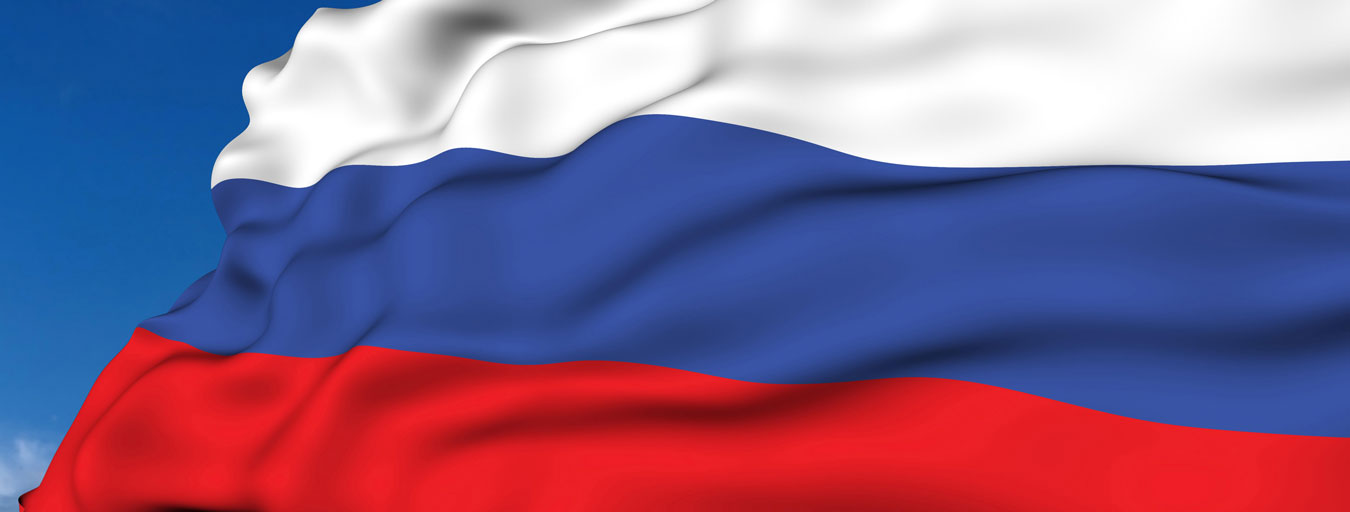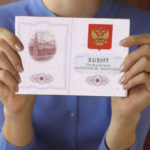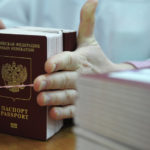
How to obtain Russian citizenship for a citizen of Ukraine
The legislation of the Russian Federation provides for a procedure for foreigners, including citizens of Ukraine in 2017. The general procedure for acquiring a legal connection with the state is quite difficult and lengthy, but many Ukrainians will be able to take advantage of a simpler and faster – simplified procedure.

The general procedure for naturalization in Russia provides for several conditions, the main one of which is long-term residence in the country (at least 5 years) from the date of receipt of a residence permit. It is obvious that several more years will pass before a person receives a residence permit. It is this provision that complicates the procedure and makes it, as many experts believe, practically impossible.
In addition, according to the general scheme, the procedure for reviewing documents alone lasts a whole year. And the decision is made exclusively by one subject - the President. This fact also does not contribute to obtaining the desired status quickly.
The simplified procedure offers much more favorable conditions. Firstly, the length of stay in this case is either greatly reduced or is not taken into account at all. It is not necessary to obtain a residence permit. This means that there is no need to wait for many years.
Considered by the heads of territorial departments of the Ministry of Internal Affairs in the constituent entities of the federation. Obviously, the presence of a large number of entities capable of considering the application gives hope for a shorter period of study and decision-making. And indeed, the waiting period has been halved. The period is up to 6 months. Practice shows that in reality the procedure for reviewing documents and making a decision on conferring Russian citizenship takes from 3 to 6 months.
This is already a serious reason to look for opportunities to undergo naturalization along a simple path.
Grounds for simplified procedure
The Law of the Russian Federation “On Citizenship of the Russian Federation” contains a list of grounds allowing citizens of Ukraine and other foreigners to take advantage of the simplified procedure for obtaining Russian citizenship in 2017.
The list of such persons includes:
- foreigners/stateless persons whose at least one parent has a Russian passport and lives in the Russian Federation;
- former citizens of the USSR who lived on its territory, who never received any citizenship and remain stateless;
- those born on the territory of the Russian Soviet Federative Socialist Republic and who received Union passports before 1991;
- persons who have a spouse with a Russian passport, provided they have lived in the Russian Federation for at least 3 years;
- disabled individuals whose children have Russian citizenship;
- a foreign parent or a stateless person whose child has Russian citizenship, provided that the second parent cannot, for objective reasons, fulfill his duties regarding the child/minor;
- foreigners/stateless persons whose children have Russian citizenship and are recognized as incompetent or limited in their legal capacity if the second parent, for objective reasons, cannot perform their functions;
- foreigners/stateless persons who have received professional or higher education in institutions of the Russian Federation since the adoption of the law (2002), who have been working in their profession in the Russian Federation for at least 3 years after graduation and before applying for citizen status;
- foreigners/stateless entrepreneurs who have been conducting business in the Russian Federation for at least 3 years with an annual revenue of at least 10 million rubles;
- investors who invest at least 10 percent of the authorized capital (comprising at least 100 million rubles) in companies operating in the Russian Federation;
- foreigners/stateless persons who have been working in the Russian Federation for at least 3 years and in specialties included in the list that provides the right to receive a simplified procedure;
- disabled stateless persons and foreigners from countries that were previously part of the USSR, subject to their registration in the Russian Federation before July 1, 2002;
- WWII participants;
- persons under 18 years of age and incompetent individuals;
- participants in the state program for the voluntary resettlement of compatriots living abroad;
- native speakers of Russian.
According to international agreements, citizens of Kyrgyzstan, Kazakhstan, and the Republic of Belarus can also acquire Russian citizenship in a simplified manner. For them, the procedure for obtaining status takes place 3 months from the date of submission of properly executed documents.
Native speakers
 For many Ukrainians, a simplified procedure for obtaining status in 2017 is available due to the opportunity to be recognized as a native speaker of the Russian language. Innovations in Russian legislation appeared in May 2014 and they are connected with quite obvious events called the “protection of the Russian-speaking population” on the territory of Ukraine.
For many Ukrainians, a simplified procedure for obtaining status in 2017 is available due to the opportunity to be recognized as a native speaker of the Russian language. Innovations in Russian legislation appeared in May 2014 and they are connected with quite obvious events called the “protection of the Russian-speaking population” on the territory of Ukraine.
The naturalization procedure for native speakers does not require a five-year residence permit to reside in the country. This major simplification allows the naturalization period to be reduced from 8 years to 1 year from the start of the procedure.
Russian legislation requires, upon obtaining the status of a citizen of the Russian Federation, to renounce Ukrainian citizenship. For persons who need to provide confirmation of obtaining another citizenship in order to renounce the previous one, a certificate of the possibility of admission to Russian citizenship is provided.
To recognize a person as a native speaker of the Russian language, commissions have been specially created under each government agency on migration issues of the Ministry of Internal Affairs. The individual is interviewed by this commission and the decision to recognize him as such is made collectively. To obtain the appropriate certificate you must:
- speak and use Russian in everyday life and the socio-cultural sphere;
- live themselves or have relatives in a direct ascending line who have ever lived on the territory of the modern Russian Federation.
To be recognized as a native speaker in 2017, both conditions must be met. To prove the fact of residence of ancestors in Russia, you need to provide the relevant documents. If there are none, you can make requests to archival institutions.
If the documents have been collected and there is all the necessary confirmation, you can submit the appropriate application. This can be done to the government agency for migration issues of the Ministry of Internal Affairs at your place of residence. Based on the results of consideration of the application, the person is invited to an interview with the commission. If the outcome of the meeting is positive, the foreigner/stateless person receives a decision to recognize him as a native speaker. The validity period of such a decision is not limited.
This document serves as the basis for an expedited procedure.
The procedure for assigning the status of a citizen of the Russian Federation to a native speaker takes only 3 months.
Expedited procedure through Russian diplomatic missions
 Another way to simply and quickly obtain the status of a Russian citizen for a Ukrainian is to undergo naturalization by submitting documents through the diplomatic missions of the Russian Federation on the territory of Ukraine. Experts say that this is the easiest way and the least expensive, since you don’t even have to go to the country for naturalization. Everything can be processed from the territory of Ukraine.
Another way to simply and quickly obtain the status of a Russian citizen for a Ukrainian is to undergo naturalization by submitting documents through the diplomatic missions of the Russian Federation on the territory of Ukraine. Experts say that this is the easiest way and the least expensive, since you don’t even have to go to the country for naturalization. Everything can be processed from the territory of Ukraine.
In this case, a list of documents and an application are submitted to the diplomatic mission of the state on the territory of Ukraine, and a decision is made within six months.
A limited number of applicants can take advantage of the opportunity to obtain citizenship in this way in 2017. To do this you must have one of the following grounds:
- have at least one parent with Russian citizenship living on the territory of the Federation (that is, has an internal passport with registration of place of residence);
- be a minor whose parent (one or only) has a Russian passport, or if a citizen of the Russian Federation has been appointed as a guardian of the minor.
In addition, stateless persons living on the territory of Ukraine who:
- were citizens of the USSR and did not receive any other legal connection with any state;
- have not reached the age of 18, provided that one (or only) parent has a Russian passport, and in the absence of parents there is a guardian with Russian citizenship.
In all other cases, even if Ukrainians have grounds for a simplified scheme for obtaining status, they will have to apply for it in 2017 on the territory of the Russian Federation.
Simplified terms and conditions
 In order to obtain citizenship through both the general and simplified routes in 2017, you must meet a certain number of conditions imposed by the Russian authorities on naturalized foreigners and stateless persons. When going through a simpler procedure, these conditions are fewer, but they are there. So, it is necessary that the naturalized person:
In order to obtain citizenship through both the general and simplified routes in 2017, you must meet a certain number of conditions imposed by the Russian authorities on naturalized foreigners and stateless persons. When going through a simpler procedure, these conditions are fewer, but they are there. So, it is necessary that the naturalized person:
- Had a legal income or source of livelihood that can be documented (if incapacity for work is recognized, social benefits are recognized as such).
- Undertook to know and comply with the requirements of the Constitution of the Russian Federation and legislative acts of the country.
- Refused other foreign citizenship when receiving Russian citizenship.
The last condition looks rather ridiculous when taking into account the fact that Russian legislation allows for the possibility of having dual citizenship and passports of other states. It turns out that this status is available only to those who are already citizens of the country.
It is necessary to officially renounce previous ties with other states and provide evidence of such a written statement to government agencies on migration issues when preparing documents for obtaining status. In 2017, refusal is not required in two cases:
- Unless otherwise provided by international agreements (Ukraine and the Russian Federation do not have such an agreement).
- If objective factors prevent this action from being completed (since the refusal can be sent to the diplomatic mission of Ukraine in the Russian Federation by mail, then the presence of such objective reasons seems doubtful).
As for means of subsistence, evidence of the existence of such can be:
- certificates from the place of work about the level of wages;
- documents from the bank on the availability of deposits;
- documents from fiscal authorities on the level of taxes paid (suitable for individual entrepreneurs);
- documents on registration of an enterprise or business activity;
- other evidence of the availability of funds or their systematic receipts.
The obligation to comply with the Constitution and the laws of the country is the simplest of all conditions, since it formally requires only a signature in the appropriate place on the application form. De jure, the signatory, of course, assumes such a responsibility, like any other citizen of the state. Which needs to comply with the legal norms established in the relevant society. That is, in fact, this point is simply a tradition, and the real obligation is included in the Constitution itself and other legislative acts.
Resettlement of compatriots
Another way that you can use to obtain the desired status in 2017 is to participate in ". To do this, you must meet the program criteria. Thus, foreigners and stateless persons included in the following list are recognized as “compatriots”:
- Individuals or descendants of such individuals living outside of Russia, belonging to ethnic groups and nationalities historically living on Russian territory.
- Individuals whose ancestors previously lived in states that existed within the modern borders of the country.
- Stateless persons/foreigners who now live outside the Russian Federation, in countries that were former members of the USSR, who had a Soviet passport.
- People from states that previously existed within the territory of modern Russia and had the appropriate citizenship.
At the same time, applicants do not have to live abroad; they can also be in the Russian Federation for one of the following reasons:
- temporary residence permit;
- resident card;
- right to temporary asylum.
Obviously, the last point is ideal for Ukrainians who have left for the Russian Federation since 2014.
Participation in the program for the return of “compatriots” provides rights to benefits, allowances and a considerable list of advantages. Under the “compatriots” resettlement program, family members of the applicant participating in the state program can also obtain citizenship.